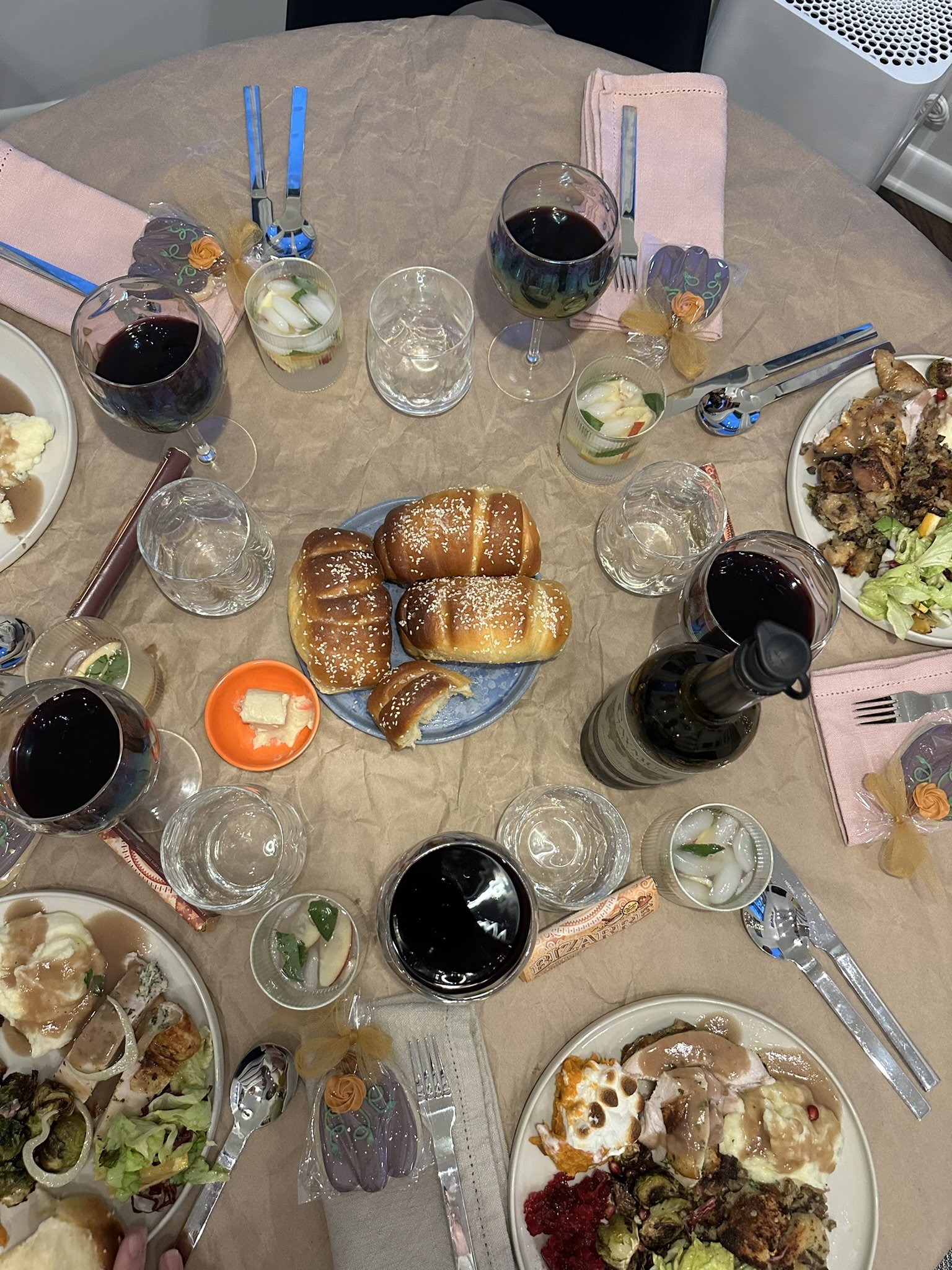Mashed Potatoes and Madeleines
How making mashed potatoes made me feel the loss of my dad all over again, among other things.
Around this time last year, I made mashed potatoes, thinking nothing of it. When I took the boiled potatoes out of their salted water, a sensation came over me that sent me to a screeching halt. My body got tense, my breathing sharpened, and my throat felt tight. I took a step away from my kitchen counter and asked myself amidst the tears, when was the last time I made these? The tenseness heightened as I pictured my 16 year old self, scooping homemade mashed potatoes into tupperware on Thanksgiving. I could see myself carrying them to the car, driving across the George Washington Bridge with them sitting on my lap, fogging up the container from the warmth. I was back in the Memorial Sloan Kettering ICU, staring blankly at my dad as he slowly spooned the mashed potatoes into his sore filled and discolored mouth. He died a week later.
“Madeleine de Proust” refers to the sensation of smell and taste triggering memories, oftentimes emotional ones. I read this excerpt of Remembrance of Things Past for the first time nearly a month ago, but I experienced Proust’s sensation hundreds of times prior. Whenever I make mashed potatoes, I experience my own Madeleine moment.
I spoke to a number of people about their own Madeleine moment. While many shared moments similar to mine, others remarked on the happy memories they associated with taste. Nicole Vanderzon (f, 23), said how each time she had a sip of Starbucks Pumpkin Cream Cold Brew, she felt transported back to senior year of college at Georgetown, sitting on the lawn amidst the foliage, spending time with those she loved. Though a cold drink, a PCCB brings her warmth.
Among those I spoke to, a clear thread emerged: taste, smell, and grief go hand in hand. Levi Luck (m, 23) used to help his grandfather make peanut brittle each Christmas. Now, since his grandpa’s death, Levi makes the brittle each year. Whenever he smells the bubbling sugar and corn syrup, he transports to years prior, sitting on a stool next to the stove as his grandpa stirs the mixture.
Bechara Karam (m, 23) once made me mahalabiya, a Lebanese rice pudding his grandmother made. He told me that when he made it for his friends, he remembered the feeling of being 8 years old in Lebanon, watching his grandmother, with awe in her abilities to cook. Now, she is 90 and cannot do much on her own, but he believes making mahalabiya connects him to remembering the days he didn’t know he took for granted as a child.
Anjali Jha (f, 23) told me about a traditional Indian mustard fish her grandmother made. Typically in India, most people have servants who take care of the cooking, but this fish was Anjali’s grandma’s speciality. When her grandma died, her mom tried to replicate the fish to no avail. When Anjali moved to India a few months ago, her grandmother's old cook had the original recipe and made her the fish. At the first bite, she remembered exactly what her grandmother looked like, standing in the kitchen stirring away at the curry.
Madeleine de Proust perfectly encapsulates the beauty of food. Across cultures and geographical borders, everyone experiences nostalgia through taste and smell. While a dish cannot bring someone or something back, it can transport the consumer back to that moment at first bite.
